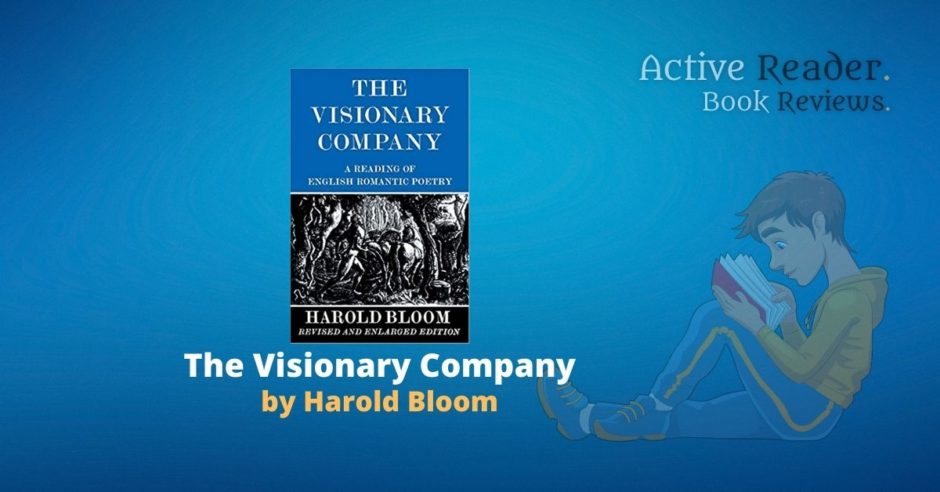Harold Bloom, one of the most famous critics of English literature, has produced a phenomenal work discussing the British Romantic Poetry between 1780 and 1830. In other words, The Visionary Company, the book by Harold Bloom, discusses romantic poets right from the beginning, that is William Blake to John Clare and George Darley, the end of the romantic movement. As one can expect from a Bloom’s book, it is filled with precise opinions, sharp observations and very helpful comments about the poets and their poetry. Have you read the book yet? Of course, the book has a very precisely defined reader base – students and teachers of English literature.
“What allies six great poets so different in their reactions to the common theme of Imagination is a quality of passion and largeness, in speech and in response to life.”
This is one of the many instantly striking remarks made in the very introduction chapter of the book. Bloom has used his analysis, readership, scholarship and factual study of the poets and their poetry to make these remarks. These remarks can lead the readers (supposedly literature students and research scholars) in various directions with a guiding line to investigate the qualities of various poets.
Mainly, there are six poets who form six isolated chapters in this little more than 500-page book. It begins with William Blake, considered to be the herald of romanticism in English literature. The second chapter is dedicated to William Wordsworth, the legendary figure in the whole romantic episode of the literature of England. As one could easily guess, the third chapter belongs to Coleridge, fourth to Byron, fifth to Shelley and sixth to John Keats, the darling of borderless imagination. One extra chapter has been given to those who tried their best to pull the c’art’ with romantic wheels to a few more meters and succeeded to a great extent.
There are many observations in the chapter on Blake and readers can take many notes. However, things become even more interesting in the chapter on Wordsworth and one can notice how wonderfully the critic in Bloom uses the opinions of others to form his own opinions. Though this is a classic tool that we also use while developing our answers or arguments, Bloom takes it to new heights with perfect timing and outstanding selections.
“The fear of mortality haunts much of Wordsworth’s best poetry, especially in regard to the premature mortality of the Imagination and the loss of its creative joy.”
The author goes on to interpret, outline and sketch a wholesome picture of the famous poems composed by the poets who are discussed in this book. The critical commentary that runs through the pages of this outstanding literary piece by the acclaimed critic is no less than a thing that occurs only after a thorough investigation of the work of art produced by great literary artists.
The style in which Bloom has prepared all his chapters, the entire document on romantic poetry, is something that makes the profound understanding of romantic poetry very simple. This book should be assumed as a wonderful piece of academic literature for those who want to understand romantic poetry as a whole and also the poets in isolation but with affiliation with each other. You can get a copy of this book, The Visionary Company from Amazon India by clicking the link below:
Buy the book from Amazon: Click here
Review by Ashish for Active Reader
The Visionary Company: A Reading of English Romantic Poetry by Harold Bloom – Review
- Active Reader Rating
Summary
The book is remarkable, wonderful and academically fit to be studied and utilised while writing research papers and thesis.





